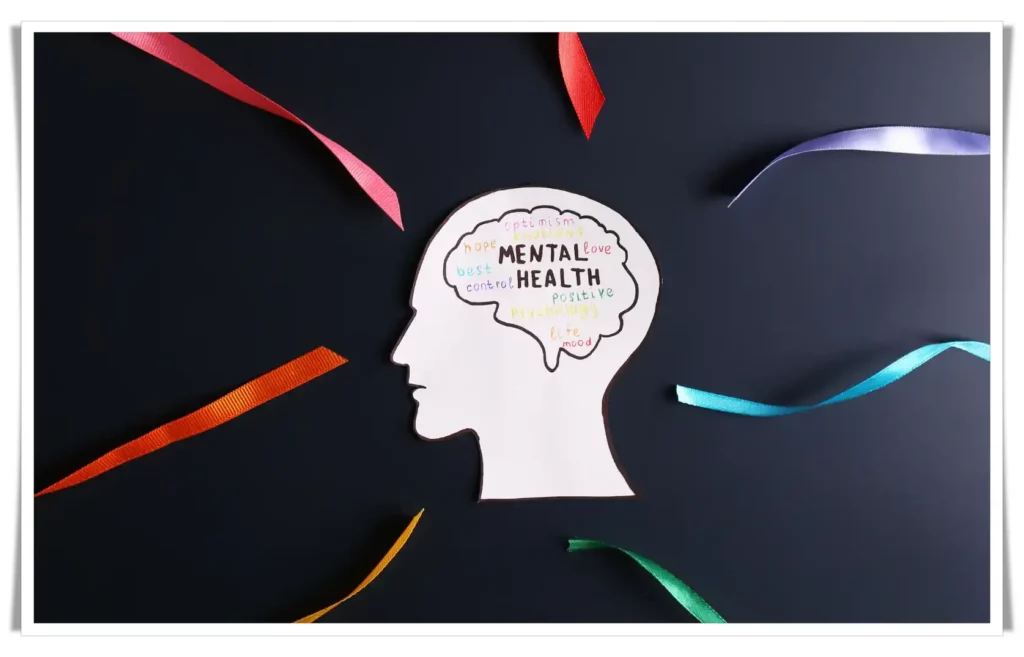If you're looking for a way to boost your mood and reduce stress, you may not need to look any further than your own two feet. Physical activity is a simple, accessible, and cost-effective way to improve both your physical health and your mental well-being. While exercise can be challenging and require effort, it can also be incredibly rewarding and empowering.
Empower Your Health Journey – Explore My Free Apps for a Vibrant, Healthier Lifestyle Today!
Not only does regular physical activity help you look and feel better, but it also has numerous benefits for your mental health, including reducing symptoms of depression and anxiety, improving cognitive function, reducing stress and improving sleep, and promoting overall feelings of well-being.
In this article, we'll explore the latest research on the relationship between physical activity and mental health, explain how physical activity benefits your mental health, offer advice on the best exercises for mental health, and provide you with the tools you need to get started on your journey to better health and happiness.
The Benefits of Physical Activity and Exercise for Mental Health and Well-Being
Numerous studies have been conducted to examine the positive effects of exercise on mental health and well-being, and the evidence is overwhelming. One of the most notable studies in this area is "The Benefits of Physical Activity and Exercise for Mental Health and Well-Being," which was published in the Journal of Clinical Psychiatry. This study reviewed a large body of research on the relationship between physical activity and mental health and found that regular physical activity and exercise have numerous benefits for mental well-being.
According to the study, physical activity and exercise have been shown to reduce symptoms of depression and anxiety, improve mood, boost self-esteem, and enhance cognitive function. Additionally, physical activity can reduce the risk of developing depression and anxiety disorders and can be an effective treatment for these conditions. The study also found that physical activity can help reduce stress, improve sleep quality, and promote overall feelings of well-being.

The study also highlights the fact that physical activity doesn't have to be strenuous or time-consuming to have a positive impact on mental health. Even light or moderate physical activity, such as taking a walk or doing some gentle stretching, can have significant mental health benefits. Of course, more vigorous forms of exercise, such as running or weightlifting, may offer even greater benefits for mental health and well-being.
Overall, "The Benefits of Physical Activity and Exercise for Mental Health and Well-Being" provides compelling evidence for the positive effects of exercise on mental health. If you're looking to improve your mental well-being, incorporating physical activity into your daily routine is a great place to start.
How Does Physical Activity Benefit Your Mental Health?
Now that we've established the positive effects of physical activity on mental health, let's dive deeper into how it actually benefits your mental well-being. First and foremost, physical activity has been shown to release endorphins in the brain, which are natural feel-good chemicals that can boost your mood and reduce feelings of stress and anxiety. Endorphins can also help improve sleep quality, which is essential for good mental health.
In addition to releasing endorphins, physical activity also increases blood flow to the brain. This increased blood flow can help improve cognitive function, including memory, attention, and focus. Physical activity can also stimulate the growth of new brain cells, which can help improve brain function and reduce the risk of cognitive decline.
Please read the article: ''How to Get Rid of Calories?''

Physical activity also provides a sense of accomplishment and mastery, which can improve self-esteem and confidence. Whether you're setting a new personal record at the gym or simply taking a walk around the block, physical activity can help you feel more in control of your life and more capable of achieving your goals.
Finally, physical activity can provide an opportunity for social interaction and support, which is crucial for good mental health. Whether you're participating in a group fitness class, playing a team sport, or simply walking with a friend, physical activity can help you connect with others and build meaningful relationships.
Releases Endorphins
endorphins. Endorphins are neurotransmitters that are produced by the central nervous system in response to various stimuli, including exercise. They are often referred to as the body's natural painkillers because they help reduce pain and discomfort in the body.
When you engage in physical activity, endorphins are released in response to the stress placed on your body. These endorphins interact with receptors in the brain that are responsible for regulating mood, leading to feelings of euphoria and improved mood. This mood boost can last for several hours after exercise, helping to reduce stress and anxiety levels.

Endorphins can also have a powerful effect on the body's stress response system. When you're under stress, your body produces cortisol, a hormone that can cause a range of negative effects on the body, including increased blood pressure, decreased immune function, and impaired cognitive function. Endorphins, on the other hand, can help counteract the effects of cortisol, leading to reduced stress levels and improved mental well-being.
Reduces Stress and Anxiety
Physical activity has been shown to reduce levels of the stress hormone cortisol, which is responsible for the body's stress response. By reducing cortisol levels, physical activity can help reduce feelings of stress and anxiety. Additionally, regular physical activity can lead to improved stress management skills and resilience to stress.
Furthermore, physical activity also helps to reduce anxiety, which is a common mental health condition that affects millions of people worldwide. Anxiety is characterized by excessive worry, fear, and nervousness, and can be debilitating for those who suffer from it. Studies have found that physical activity can significantly reduce anxiety symptoms, even in individuals with clinically diagnosed anxiety disorders.

Improves Sleep
This is believed to be due to the effects of exercise on the brain, including increased blood flow and oxygenation, improved neurotransmitter function, and the release of endorphins, as mentioned previously. In addition, physical activity provides a healthy outlet for stress and anxiety, helping individuals to channel their emotions in a positive way and providing a sense of control over their mental health.
Overall, incorporating regular physical activity into your lifestyle can help to reduce stress and anxiety, improving your mental health and quality of life.
Another way physical activity benefits your mental health is by improving sleep. Regular exercise can help regulate your body's natural sleep-wake cycle, leading to better quality sleep. Poor sleep has been linked to numerous mental health issues, including depression and anxiety, so improving your sleep through physical activity can have a positive impact on your overall mental well-being.
In addition to regulating your sleep-wake cycle, physical activity can also help you fall asleep faster and experience deeper, more restorative sleep. This is because exercise helps to increase the production of adenosine, a chemical in the brain that promotes sleep.

So, physical activity can help to reduce the symptoms of sleep disorders, such as sleep apnea, by strengthening the muscles in the respiratory system and improving overall cardiovascular health. Getting enough restful sleep is critical for good mental health, as it allows your brain and body to recharge and repair. When you are sleep-deprived, you may experience increased levels of stress, anxiety, and depression, as well as difficulty concentrating and making decisions. By incorporating physical activity into your routine, you can improve the quality of your sleep and enjoy the mental health benefits that come with it.
Boosts Self-Esteem and Confidence
Physical activity can also improve self-esteem and confidence, which are important components of mental well-being. By setting and achieving fitness goals, you can feel a sense of accomplishment and pride, which can carry over into other areas of your life. Additionally, regular physical activity can lead to improvements in body image and self-perception.
Regular physical activity can have a significant impact on how you perceive yourself and your abilities. Engaging in physical activity, whether it's running a 5K or lifting weights, can give you a sense of accomplishment and empowerment that can translate to other aspects of your life. When you set and achieve fitness goals, you build a sense of confidence in your abilities and increase your self-esteem. These positive feelings can carry over into your personal and professional life, making you feel more capable and confident in your abilities.
Furthermore, physical activity can help you develop a positive body image and self-perception. Many people struggle with negative body image and low self-esteem, which can lead to mental health issues like depression and anxiety.

Regular physical activity can help you feel more comfortable and confident in your own skin by improving your physical appearance and reducing feelings of self-consciousness. As you begin to see improvements in your strength, endurance, and overall fitness, you may feel more positive about your body and less critical of yourself. This can lead to a more positive self-image and a healthier, more confident outlook on life.
Enhances Cognitive Function
Physical activity has been shown to enhance cognitive function, including improved memory, concentration, and problem-solving abilities. Regular physical activity has also been linked to a reduced risk of cognitive decline and dementia in older adults.
Physical activity can enhance cognitive function by increasing blood flow and oxygen to the brain. Exercise promotes the growth of new brain cells and the formation of new neural connections, which can improve cognitive function. Studies have also shown that physical activity can improve executive function, which is the ability to plan, organize, and execute tasks.
This can lead to improved productivity and success in both personal and professional settings. In addition, physical activity can enhance creativity, as exercise has been shown to improve divergent thinking, which is the ability to generate creative ideas. So, by engaging in regular physical activity, you can not only improve your physical health but also your cognitive abilities, leading to better mental well-being overall.
The Relationship Between Physical Activity and Mental Health
Physical activity and mental health are closely related. In addition to the benefits discussed above, physical activity can also improve social connectedness, reduce feelings of loneliness and isolation, and provide a sense of purpose and meaning. On the other hand, a lack of physical activity can lead to numerous mental health issues, including depression, anxiety, and stress.
Three Ways Physical Activity Can Benefit Your Mental Health
Now that we've covered the general benefits of physical activity for mental health, let's explore three specific ways that physical activity can benefit your mental well-being.
1. Reduce Symptoms of Depression and Anxiety
Physical activity has been shown to be an effective treatment for depression and anxiety. Exercise can release endorphins, which can improve mood and reduce feelings of stress and anxiety. Additionally, regular physical activity can lead to improved self-esteem and confidence and can provide a sense of purpose and accomplishment. This can all contribute to reducing symptoms of depression and anxiety.
2. Improve Cognitive Function
As we mentioned earlier, physical activity can enhance cognitive function, including memory, concentration, and problem-solving abilities. This can lead to improved overall mental performance and can be particularly beneficial for those who have cognitive impairments or are at risk for cognitive decline.
3. Reduce Stress and Improve Sleep
Physical activity can help reduce levels of the stress hormone cortisol, which can lead to reduced feelings of stress and anxiety. Additionally, exercise can help regulate the body's natural sleep-wake cycle, leading to better quality sleep. Both of these benefits can have a positive impact on overall mental well-being.
How Does Lack of Exercise Affect Your Mental Health?
On the other hand, a lack of physical activity can have negative effects on mental health. Inactivity has been linked to an increased risk of depression and anxiety, as well as poor sleep quality. Additionally, a sedentary lifestyle can lead to social isolation and feelings of loneliness.

Best Exercises for Mental Health
While any physical activity is better than none, some exercises may be particularly beneficial for mental health. Here are a few examples:
1. Aerobic Exercise
Aerobic exercises, such as running, cycling, or swimming, have been shown to be particularly effective in reducing symptoms of depression and anxiety. This type of exercise can release endorphins, improve mood, and reduce stress levels.
2. Yoga and Mindfulness-Based Practices
Yoga and other mindfulness-based practices, such as meditation, have been shown to reduce symptoms of anxiety and stress. These practices can help improve mindfulness and reduce negative thought patterns.
3. Strength Training
Strength training has been shown to improve self-esteem and body image, which can be beneficial for mental health. Additionally, building muscle can lead to improved physical function, which can improve the overall quality of life and mental well-being.
Physical Activity and Mental Health Research Paper
If you're interested in learning more about the relationship between physical activity and mental health, there are numerous research papers available on the topic. In addition to the study we mentioned earlier, "The Benefits of Physical Activity and Exercise for Mental Health and Well-Being," other notable research papers include:
- "Exercise for Mental Health" by M. Josefsson and T. Lindwall, published in the Scandinavian Journal of Medicine and Science in Sports
- "Exercise and the Prevention of Depression: Results of the HUNT Cohort Study" by S.M. Mammen and G.F. Faulkner, published in the American Journal of Preventive Medicine
- "Physical Activity and Mental Health in Children and Adolescents: A Review of Reviews" by J. Lubans et al., published in the Journal of School Health
Exercise and Mental Health Statistics
Here are a few statistics related to exercise and mental health:
- In a study of over 1.2 million individuals, those who exercised had a 43% reduction in poor mental health days compared to those who didn't exercise.
- Exercise has been shown to be as effective as medication in treating depression in some cases.
- Regular exercise has been linked to a reduced risk of developing Alzheimer's disease and other forms of dementia.

FAQ
Here are some common questions related to physical activity and mental health:
Q: How much exercise do I need to see mental health benefits?
A: The amount of exercise needed to see mental health benefits can vary depending on the individual and the type of exercise.
However, the American Heart Association recommends at least 150 minutes of moderate-intensity aerobic exercise or 75 minutes of vigorous-intensity aerobic exercise per week for overall health benefits, including mental health benefits.
Q: Can exercise help with anxiety?
A: Yes, exercise can be an effective treatment for anxiety. Regular physical activity can help reduce symptoms of anxiety, including feelings of tension, worry, and stress.
Q: What is the best time of day to exercise for mental health benefits?
A: The best time of day to exercise for mental health benefits may vary depending on the individual's schedule and preferences. However, some research suggests that exercising in the morning may lead to better sleep quality, which can have a positive impact on overall mental well-being.
Conclusion
In conclusion, physical activity has numerous benefits for mental health and well-being. Regular exercise can reduce symptoms of depression and anxiety, improve cognitive function, reduce stress and improve sleep, and promote overall feelings of well-being. While any physical activity is better than none, aerobic exercise, yoga, and strength training may be particularly beneficial for mental health. If you're looking to improve your mental health, consider incorporating physical activity into your daily routine.
If you have questions or want to comment, please leave them below and I will answer as soon as I can.
Thank you for reading ''Sweat Your Way to Happiness: How Physical Activity Benefits Your Mental Health''





🤩 I loved reading this article! It’s so inspiring to know that something as simple as physical activity can have such a positive impact on both our physical and mental health. The author’s passion for the topic really shines through and makes me want to lace up my sneakers and hit the pavement ASAP! 🏃🏻♀️
Wow, superb weblog structure! How long have you ever been running a blog for?
you made blogging look easy. The whole look of your web site is excellent,
as well as the content! You can see similar: ecommerce and here e-commerce
We absolutely love your blog and find a lot of your post’s to
be exactly what I’m looking for. Does one offer guest
writers to write content for yourself? I
wouldn’t mind composing a post or elaborating on some of the subjects you write about here.
Again, awesome web site! I saw similar here: sklep online and also here: sklep online
I’ve been surfing on-line more than three hours as of late, yet I
never found any attention-grabbing article like yours.
It is pretty worth sufficient for me. Personally, if all web owners and bloggers made excellent content material as
you probably did, the net shall be much more helpful than ever
before. I saw similar here: E-commerce